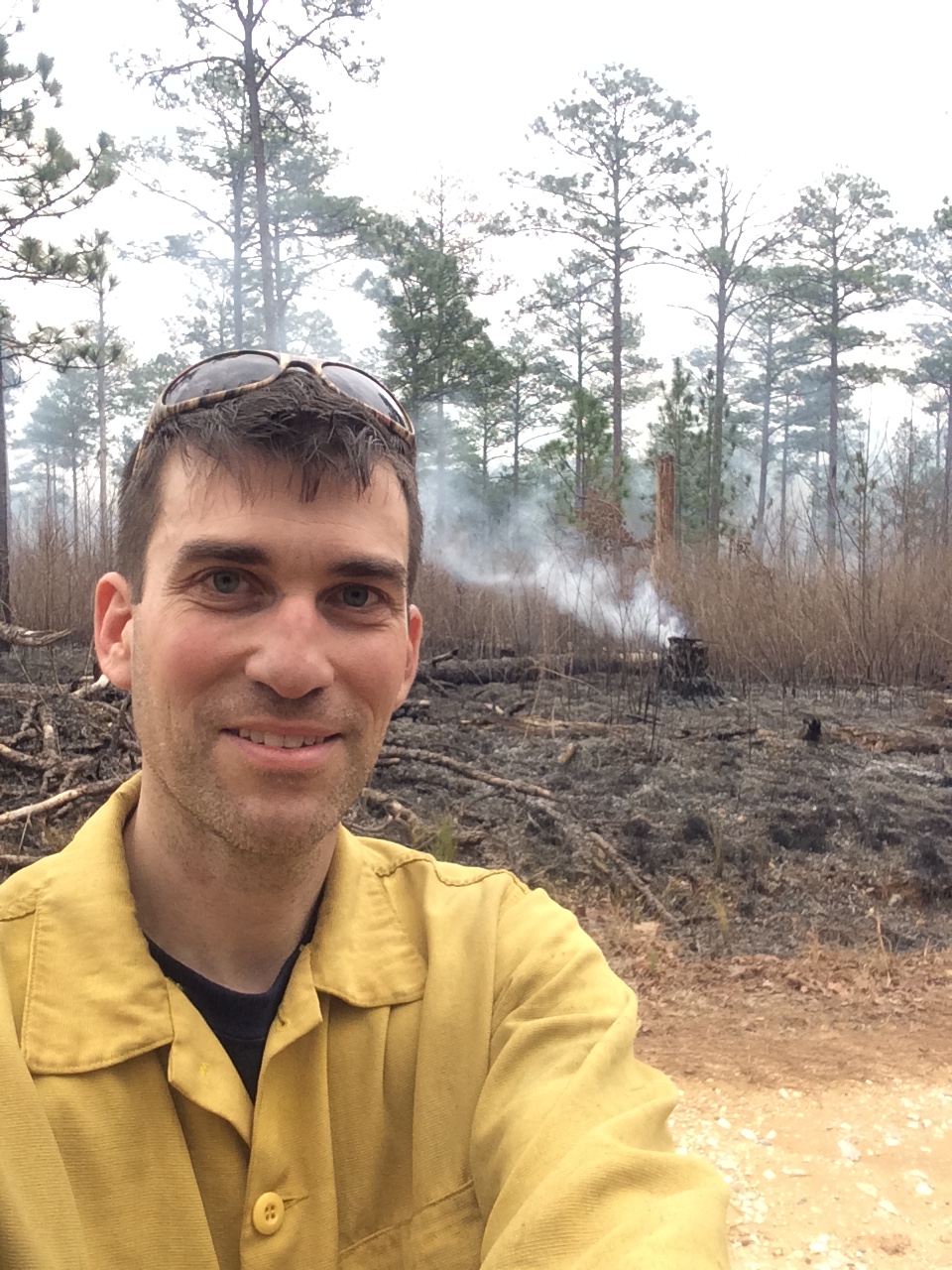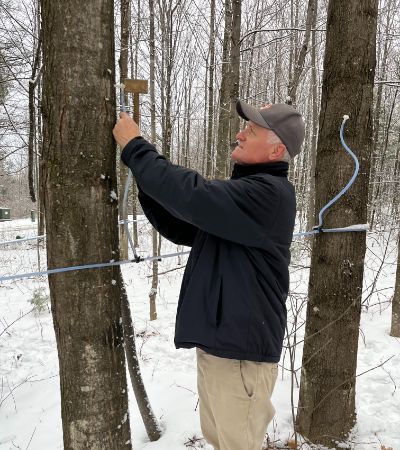Embedded Certificate in Wildlife Ecology
Discover your passion for wildlife conservation and management by pursuing a Certificate in Wildlife Ecology.
Application Form
For more information, please see the Academic Catalog.
The embedded certificate in wildlife ecology includes coursework on the biota, habitat, and human dimensions of wildlife conservation and management. This certificate provides a curriculum focus for students interested in wildlife biology, ecology, natural resources, zoology, botany, veterinary science, and environmental health. The certificate can be easily combined with a major or minor in biology or the BIS pathway in natural resources management to provide a specialization. The UWG Biology Program has a full range of hands-on wildlife ecology courses, including specialized topics such as fire ecology, wildlife techniques, and habitat management. All certificate courses are offered yearly with available options every semester. There is an existing student Wildlife Club at UWG to provide additional support, mentoring, and recruitment for the certificate program.
Program Location
Carrollton Campus
Method of Delivery
Face to Face
Accreditation
The University of West Georgia is accredited by The Southern Association of Colleges and Schools Commission on Colleges (SACSCOC).
Credit and transfer
Total semester hours required:
This program may be earned entirely face-to-face. However, depending on the courses chosen, a student may choose to take some partially or fully online courses.
Save money
UWG is often ranked as one of the most affordable accredited universities of its kind, regardless of the method of delivery chosen.
Details
- Total tuition costs and fees may vary, depending on the instructional method of the courses in which the student chooses to enroll.
- The more courses a student takes in a single term, the more they will typically save in fees and total cost.
- Face-to-face or partially online courses are charged at the general tuition rate and all mandatory campus fees, based on the student's residency (non-residents are charged at a higher rate).
- Fully or entirely online course tuition rates and fees my vary depending on the program. Students enrolled in exclusively online courses do not pay non-Resident rates.
- Together this means that GA residents pay about the same if they take all face-to-face or partially online courses as they do if they take only fully online courses exclusively; while non-residents save money by taking fully online courses.
- One word of caution: If a student takes a combination of face-to-face and online courses in a single term, he/she will pay both all mandatory campus fees and the higher eTuition rate.
- For cost information, as well as payment deadlines, see the Student Accounts and Billing Services website
There are a variety of financial assistance options for students, including scholarships and work study programs. Visit the Office of Financial Aid's website for more information.
Coursework
A Minimum of 15 Total Credit Hours. Credit hours from courses taken to fulfill the certificate also count toward the B.S. in Biology, Biology minor, and BIS pathway in natural resources management. Furthermore, certificate requirements do not change the degree requirements for any of these programs.
Required Course
Must achieve at least a C grade.
This course is designed to familiarize Biology majors with the factors controlling the structure and function of populations, communities, and ecosystems. The role of evolutionary processes in the structure and function of these systems will also be explored. Basic concepts will be synthesized and reinforced by investigating the dynamics of the aquatic life zones and terrestrial biomes on earth.
Upper-level Electives
Complete a minimum of 11 3000/4000 credit hours from the following courses. Must achieve at least a grade of C or Satisfactory in each course. BIOL 4983 & 4986 require an approved placement.
This course is designed to familiarize biology majors with the ecology and management of terrestrial wildlife habitats. Ecological concepts and principles relevant to wildlife habitat structure and function will be evaluated from the individual, population, community, ecosystem, and landscape levels of organization. Management practices that affect the structure and function of wildlife habitats will be evaluated for agricultural and forest ecosystems. Concepts will be synthesized and reinforced by investigating the habitat requirements for a variety of wildlife species in the southwestern United States.
This is a field-based course in fire ecology concepts and techniques of the Southeast. Hands-on lessons address the use of prescribed fire to benefit ecosystems and cover safety, weather, fuel, firing techniques, and smoke management. Students will write a prescribed burn plan and participate in several burn events outside of regular class time
Conservation biology is an interdisciplinary field with the main goal of preserving biodiversity. Course topics will cover ecosystem services, major threats, solutions, and policy related to biodiversity and endangered species. Students will apply their knowledge by conducting a local conservation research project and communicating their findings.
This hands-on, field-based course introduces techniques used by managers and researchers when working with wildlife including birds, mammals, reptiles, and amphibians. Major course topics cover wildlife classification and taxonomy map and compass navigation, animal capture and handling, sex and age determination, invasive and noninvasive marking, remote tracking, and habitat sampling.
This course provides an in-dept study of the processes controlling the structure and function of terrestrial ecosystems. Basic concepts will be synthesized and applied comparing and contrasting the dynamics of terrestrial ecosystems in the Coastal Plain, Piedmont, and Mountain Regions of the Southeastern United States.
A course designed to allow students to conduct faculty-directed, independent research projects in areas of the biological sciences. The course may be repeated, but credit for BIOL 4983 may be applied toward biology degree requirements for a maximum of 4 credit hours.
Students wishing to enter an internship experience should discuss with their academic advisor the procedure for arranging the internship and the expectations for student performance. Credit hours received will be determined by the amount of time devoted to the internship. Variable Credit Course 1-4 hours. May be repeated for up to 12 hours.

Andrew Edelman, Ph.D.
Professor of Biology, Graduate Program Coordinator, & Co-director of Wildlife Ecology Certificate Program
Joe Hendricks, Ph.D.
Professor of Biology & Co-Director of the Wildlife Ecology Certificate ProgramGuidelines for Admittance
Enrolled UWG students can complete the application form listed above to apply for entry into the certificate program. After reviewing your academic record, the certificate directors will contact you for advisement.
Application Form
Specific dates for Admissions (Undergraduate only), Financial Aid, Fee Payments, Registration, Start/End of term, Final Exams, etc. are available in THE SCOOP.
- Summarize core principles from wildlife biology, habitat management, and human dimensions and apply them to wildlife management and conservation.
- Master basic research skills and techniques to manage and conserve wildlife resources.
- Communicate effectively via oral, written, and digital platforms to general and scientific audiences about wildlife ecology.
